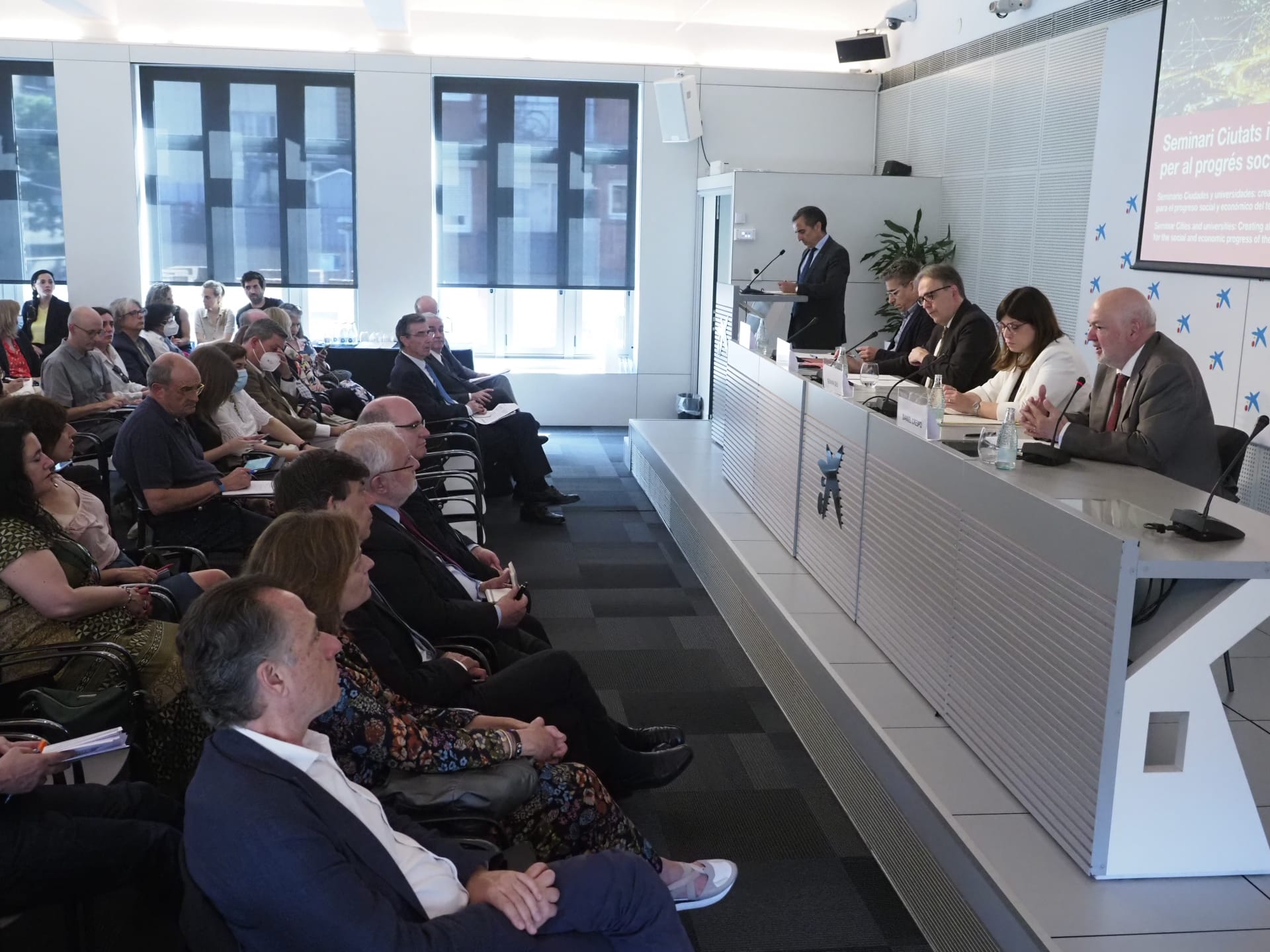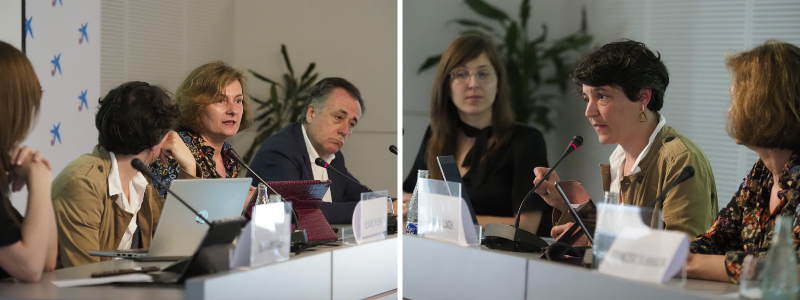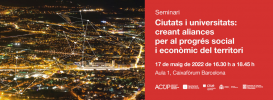Seminar "Cities and universities: creating alliances for the social and economic progress of the territory"
The Associació Catalana d'Universitats Públiques (ACUP), together with the Barcelona City Council, the Conference of Rectors of Spanish Universities (CRUE), the Ministry of Universities of the Government of Spain and the Department of Research and Universities of the Generalitat de Catalunya, in collaboration with Fundació "la Caixa", held this Tuesday, May 17, the seminar "Cities and universities: creating alliances for the social and economic progress of the territory". This event has highlighted the importance of generating synergies between higher education institutions and the territories and societies where they are located to advance and innovate.
The Rector of the University of Lleida and President of the ACUP, Jaume Puy, and the Vice-President of the CRUE, José M. Sanz, opened the seminar with some welcome words. Next, the first round table was introduced, with the participation of Joan Subirats, Minister of Universities of the Government of Spain, Gemma Geis, Minister of Research and Universities of the Generalitat de Catalunya, Jordi Martí, Deputy Mayor of the Area of Culture, Education, Science and Community of the City of Barcelona, and the Rector of the Universitat Politècnica de Catalunya (UPC), Daniel Crespo. The table was moderated by the Vice-Rector of International Relations of the University of Barcelona, Ángel Martínez.

The conversation begun with the question "How can we strengthen synergies between cities and universities?", to which, from the various institutions, the same message was repeated several times: The university system currently has a great capacity for research, but we still have a long way to go in terms of innovation. And in order to innovate, it is necessary for universities and cities to work together to move from best-practices to the implementation and effective transformation of the institutions and the society.
Jordi Martí has summarized the main aspects that it is necessary for the university and the city to offer each other. On the one hand, the city must offer spaces for training, research, transfer of knowledge, etc., as well as "a vibrant creative ecosystem" for international talent to want to move towards it. In addition, the city must be committed to scientific culture. On the other hand, the university must be an institution of social commitment in a context and with an increasingly diverse population; the city also asks the university for innovation and the ability to accompany city governments in the face of contemporary social challenges.
From the UPC, Daniel Crespo spoke from the experience of having 7 university campuses in a diversity of cities and stressed that, if we want to promote innovation -this pending subject of the university sector-, we must generate interactions: "We have to create "ecosystems", get all the actors to come together as much as possible. We must tend to turn campuses into hybrid campuses, where we have connections with vocational training and create innovation incubators and connection points with companies." Crespo has appealed to the creation of spaces such as the 22@ in Barcelona, "where universities become organic elements of the city".

A second round table was held where projects and practices from various territories were presented, providing a practical vision on how universities and cities work to promote and improve synergies and pass, as claimed in the first table, from best-practices to innovation, moving towards the idea of knowledge society. To this end, the table was formed by Elisabeth Lehec, Head of the City interface unit and Research on the Decision of the Directorate for Climate and Ecological Transition of the City of Paris; Francesc Subirada, Rector of the Initiative for the City of Knowledge at the Universitat Pompeu Fabra; Silvia Llach, Vice-Rector for Territory and Social Commitment of the University of Girona and, in virtual format, they were accompanied by Raffaele Laudani, Deputy Mayor for Urbanism, Universities and Research Centres, who introduced the special projects "City of Knowledge" and "Democratic Memory" of the Municipality of Bologna.
